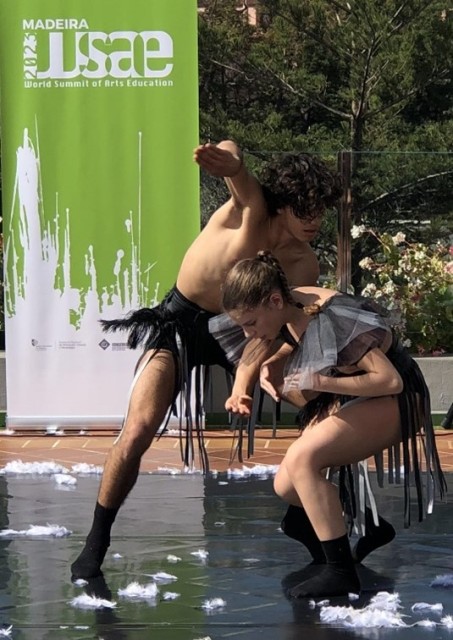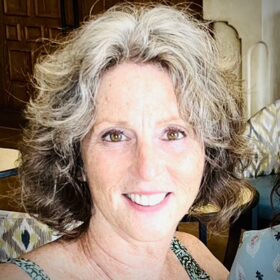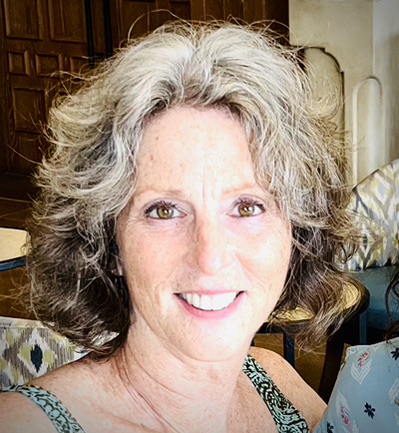Towards Crafting a Global Framework for Arts Education

As I clicked the button to reserve my plane ticket to Portugal last Spring, I wondered… Would this feel like a homecoming of sorts? What core values and aspirations do I share with my international colleagues? Would there be significant differences in our perspectives and understandings about our profession? Does where we live in the world impact the way we understand and perform our work in arts education?
This spring, I had the honor of attending and presenting at the World Summit for Arts Education held in Madeira, Portugal. For three days, 250 arts and culture professionals, ministers of education, teaching artists, consultants, and thought leaders from around the world shared their research, expertise, artistry, and ideas with one another. We talked, listened, participated in, and envisioned new possibilities for the field of arts education. As part of the Summit’s planned activities, we also were treated to student performances from Madeira’s Professional School of the Arts.
The official business of the Summit was to make recommendations to UNESCO’s Culture and Education Ministries in the areas of curriculum, teacher training, and cultural relevance to develop best practices that would more appropriately respond to an increasingly complex and interconnected world. To set the stage, UNESCO officials shared results from a 2022 global survey of arts and culture practitioners as well as themes generated from the 2022 International Experts Meeting in Seoul, Korea. The highlights of their findings are summarized below:
Key Messages about Arts and Culture Education
- Consistent access to rigorous education is important.
- Culture and arts education is largely absent from primary and secondary education.
- Teachers are limited by outdated concepts and approaches to education.
Key Recommendations for Policy Makers
- Specialized training in the arts and culture is needed to build teacher capacity.
- Teachers benefit from improved access to quality teaching methods and resources.
- More time and flexibility is needed to build teacher competency in arts and culture education.
- Arts and Cultural networks within and across regions and states need to be built and supported.
- Opportunities for knowledge-sharing of evidence-based research need strengthening.
Possible Actions
- Invest in rigorous teacher professional development.
- Strengthen teacher communities and learning exchanges (local, national, global).
- Recognize the professional skills and qualifications of arts educators through the power of the marketplace.
- Identify areas where more teachers are needed.
- Ask teachers what support they need.
During the work session, we discussed the findings and data, brainstormed possible reforms, and recommended needed supports based on our own field experiences and recent research in arts teaching and learning. Together, we crafted language for inclusion in The Zero Draft Framework for Culture and Arts Education expected to be endorsed at UNESCO’s World Conference in Abu Dhabi, United Arab Emirates in February 2024.
Additional summarized insights from delegates at the World Summit for Arts Education 2023
For all disciplines, education in the arts
- Is constructed from and experienced through evolving social systems.
- Is driven by equity, diversity, and inclusion within a social justice orientation.
- Provides ways to question, process, and understand global concerns and events.
- Places a greater value on the creative process rather than the exhibition of a final product.
- Opens the school doors to culture through education that involves critical and aesthetic thinking.
- Requires a curricular framework that embeds experiential, trans-disciplinary, social emotional, cognitive, and embodied practices into learning opportunities.
Delegates also recommend that governments adopt and fund strategic plans to facilitate strong partnerships
- between schools and cultural institutions, artists, and cultural agents
- that are based upon collaboration, cocreation, and co-working agreements.
I left the Summit with my heart full and my head swirling with new ideas. I was struck by the strength of our shared values, knowledge, experiences, and passion for the work. I felt uplifted by the commitment of all those present to continue advocating for transformational arts experiences wherever and whenever they take place.

